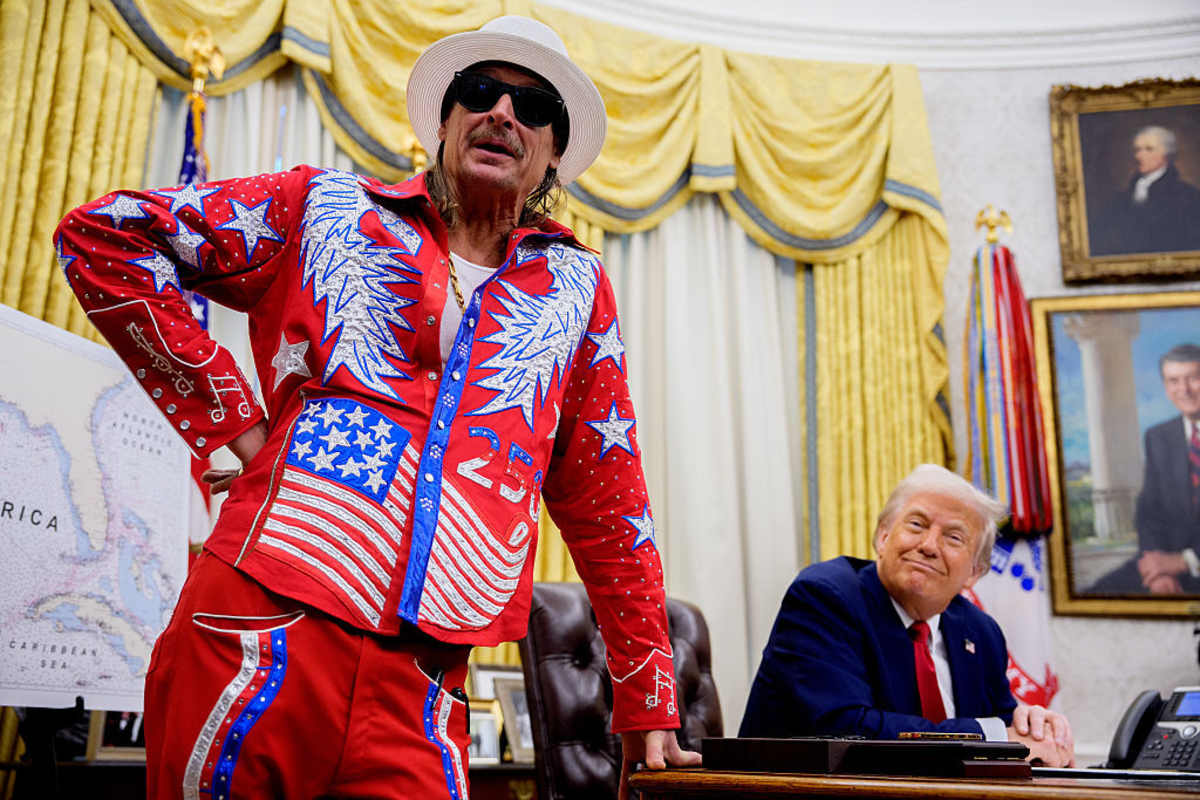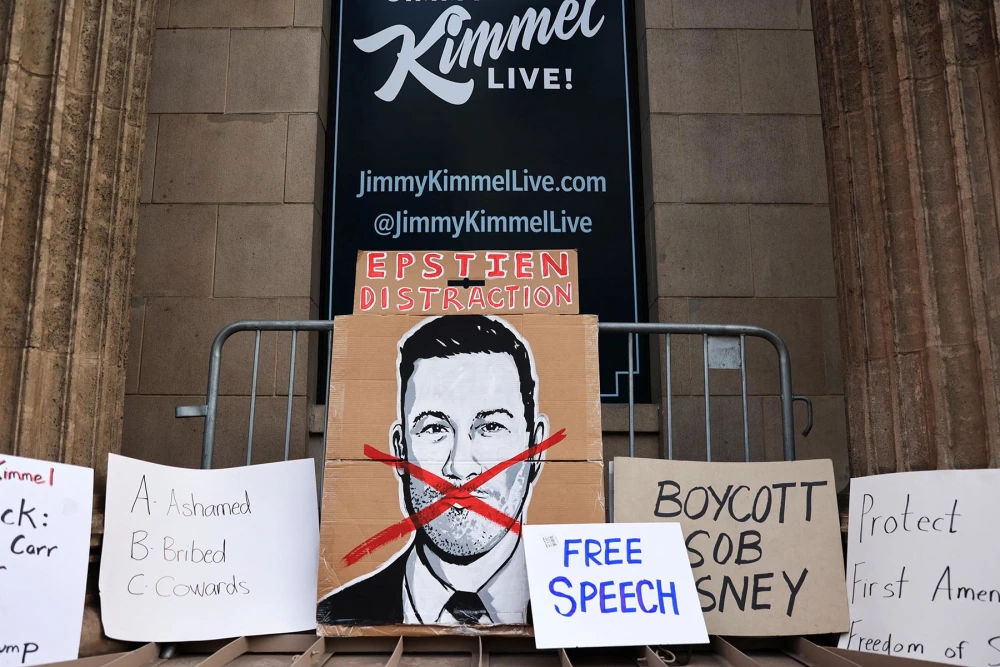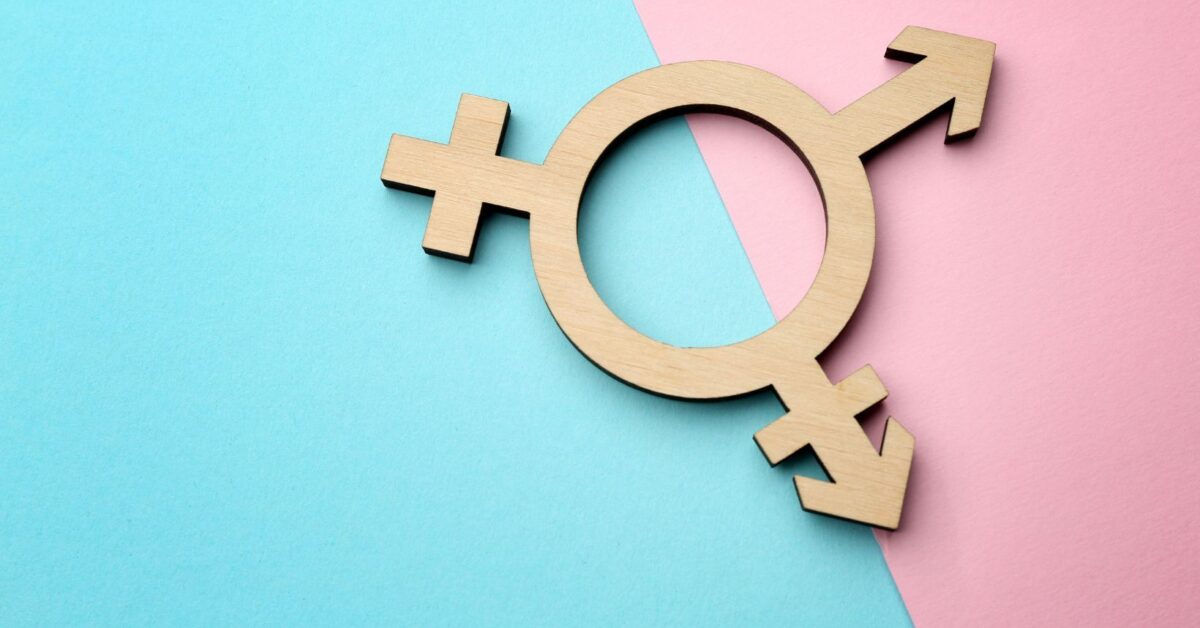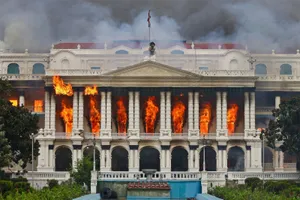President Donald Trump’s recent months in office have been filled with change through executive orders and dramatic government reform. Some of the most notable executive orders include banning transgender women from competing in NCAA women’s sports teams, dismantling the Department of Education and banning Diversity, Equity and Inclusion practices within the federal government.
However, as always in politics, things move fast, and change is rapid. This means there are even more executive orders to break down. Most have been drowned out in the media by other, more newsworthy executive orders listed above. Let’s highlight some of the most recent executive orders.
“Regulating Imports with a Reciprocal Tariff to Rectify Trade Practices that Contribute to Large and Persistent Annual United States Goods Trade Deficits”
This action is what most Americans heard of as “Liberation Day” — a day of sweeping tariff hikes, which includes a universal 10 percent tariff on all imported goods. The Trump administration has explained that this policy will help American job growth and strengthen our economic security.
“An America First Trade Policy will unleash investment, jobs, and growth at home; reinforce our industrial and technological advantages; reduce our destructive trade imbalance; strengthen our economic and national security; and deliver substantial benefits for American workers, manufacturers, farmers, ranchers, entrepreneurs, and businesses,” the administration said in a statement.
The administration further explained that this action would lead to increased U.S. investment in manufacturing capacity and less reliance on foreign adversaries for production capabilities.
“Large and persistent annual U.S. goods trade deficits have led to the hollowing out of our manufacturing base; inhibited our ability to scale advanced domestic manufacturing capacity; undermined critical supply chains; and rendered our defense-industrial base dependent on foreign adversaries,” the administration said.
The most notable is the tariff on China, the 20% tariff already in place will add 34%, making it an effective tariff of 54%. This marks a sharp escalation in the global trade war.
If you follow the economy or stocks, you probably know that the U.S. market isn’t performing too well right now. This announcement triggered a sharp drop in U.S. stocks — making the S&P 500 and the Nasdaq have their biggest one-day loss since the start of the pandemic.
Nonetheless, in theory, sell high and buy low. There’s a great sale going on right now for stocks if you’re not scared of a larger, longer recession on the horizon.
“Further Amendment to Duties Addressing the Synthetic Opioid Supply Chain in the People’s Republic of China as Applied to Low-Value Imports”
To put it simply, this order bans shippers from China from concealing shipping contents that are being sent to the United States.
“Many shippers based in the People’s Republic of China (PRC) hide illicit substances and conceal the true contents of shipments sent to the United States through deceptive shipping practices. These shippers often avoid detection due to administration of the de minimis exemption,” the administration said.
The de minimis exemption is a loophole that applies to goods worth less than $800. If under $800, these goods are allowed to enter the United States tariff-free. This executive order removes the exemption from shipment from China, the largest source of de minimis shipments.
“These exports play a significant role in the synthetic opioid crisis in the United States,” the administration said.
In addition to the tariff hike explained above, these two executive orders, both released on April 2, mark a key escalation in Chinese-American relations. There is a key distinction between a trade and economic war and an actual land war, however, these two actions are notable in the new Trump administration era of international relations.
“The United States will address its relationship with China under the principles of reciprocity and fairness,” the U.S. Department of State said. “In its bilateral economic relations with China, the United States will place U.S. interests and the American people first and work to end China’s abusive, unfair, and illegal economic practices.”
“Combating unfair practices in the live entertainment market”
Enough about China, let’s talk about Michigan native Kid Rock and Ticketmaster.
“America’s live concert and entertainment industry is the envy of the world. But it has become blighted by unscrupulous middlemen who sit at the intersection between artists and fans and impose egregious fees while providing minimal value. Ticket scalpers use bots and other unfair means to acquire large quantities of face-value tickets and then re-sell them at an enormous markup on the secondary market, price-gouging consumers and depriving fans of the opportunity to see their favorite artists without incurring extraordinary expenses,” the administration said. “When this occurs, the artists do not receive any profit. All profits go solely to the scalper and the ticketing agency.”
The order calls for the Federal Trade Commission (FTC) to enforce competition laws and propose regulations in the entertainment industry, including the enforcement of the Better Online Ticket Sales Act — which prohibits technological control by an online ticket issuer.
On March 31, when the order was signed, Trump invited Kid Rock to the Oval Office.
“Anyone who’s bought a concert ticket in the last decade, maybe 20 years — no matter what your politics are — knows that it’s a conundrum,” Kid Rock said. “You can buy a ticket for $100. By the time you check out, it’s $170. You don’t know what you’ve been charged for.”
Under former President Joe Biden, the Biden administration worked with the FTC to propose a ban on junk fees, such as concert tickets. This executive order illustrates a rare crossover between the two administrations, no matter how different their policies are.
In May of 2024, the Justice Department sued Ticketmaster for running an illegal monopoly over live events.
“Ticketmaster … thwarts competition in markets across the live entertainment industry,” the Justice Department said. “Live Nation-Ticketmaster unlawfully exercises its monopoly power in violation of Section 2 of the Sherman Act. As a result of its conduct, music fans in the United States are deprived of ticketing innovation and forced to use outdated technology while paying more for tickets than fans in other countries. At the same time, Live Nation-Ticketmaster exercises its power over performers, venues, and independent promoters in ways that harm competition.”









